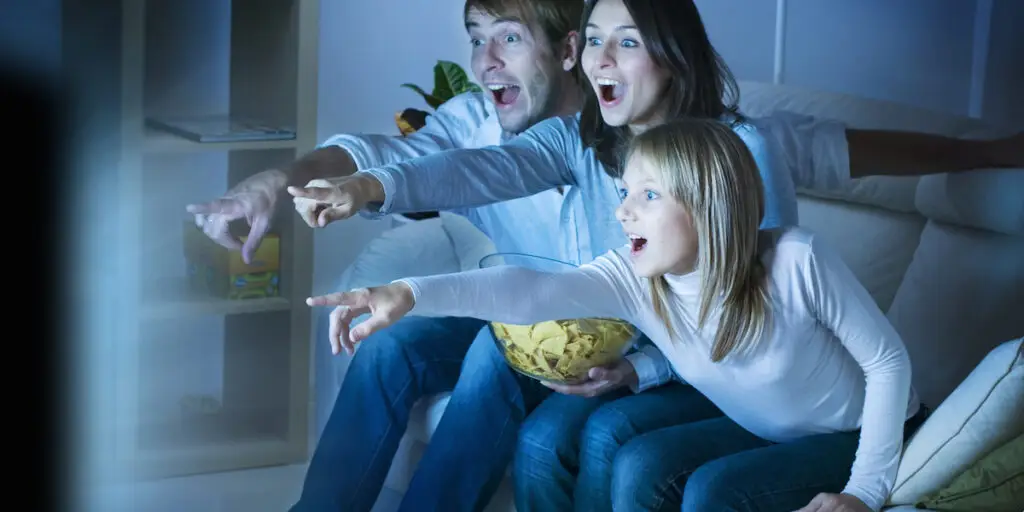For better or worse, media has a powerful influence in our kids’ lives! Today’s media sends nonstop communication, delivering its voice through television, movies, Internet, music, magazines, books, computers, smartphones, tablets, and more. Frankly, it is impossible for parents to have control over every message that is being sent to our kids.
Because parents can’t control all of their kids’ media consumption, some feel lost, hopeless, or paralyzed when facing today’s technology and media. We may complain, but it is time for us to quit whining, and do something. Don’t give up. Don’t bail out. There are things we can do and environments we can foster to create a media-safe home.
Watch, Listen, and Read. Creating a media-safe home requires that you become a student of the culture. The easiest way to get a handle on what media your kids are consuming is to watch what they watch, listen to what they listen to, and read what they read. The best people to teach you about the influence of media are the teenagers closest to you: your kids and your kids’ friends. Make a list of various media you want to talk about with your kids, and then look for opportunities to ask and learn. Things worth considering as you seek to learn: How does this media influence my teen (positively, negatively, or neutrally)? How much time does my teen spend with this type of media each day? Each week? And what are the potential dangers of this type of media?
Evaluate. Evaluate everything you see and hear with your kids. This takes a lot of work, but it’s worth it. When you evaluate, don’t just position yourself as the bad cop. Tell your kids what you like and don’t like and why, and help them to discern what they are putting into their minds.
Examine Your Own Behavior. Too many parents want their children to view healthy images, listen to clean music, and watch cute animal videos on YouTube, but aren’t willing to discipline their own lives. If Dad comes home from work and jumps on the computer for hours, his teens won’t understand why they can’t. Keep this verse in mind: “‘Everything is permissible for me,’ but not everything is beneficial. ‘Everything is permissible for me,’ but I will not be mastered by anything” (1 Corinthians 6:12 CSB).
Discuss and Listen; Don’t Lecture. Anytime we can truly dialog with our kids about media use and influence, it is better than any lecture or sermon we could ever deliver to them. Ultimately, you may choose to disagree with your kids’ opinions but they will at least feel you were willing to listen.
Develop Clear Expectations. Families should set boundaries and time limits for TV, smartphones, social media, laptop/computer use, video gaming, texting, and any other media use. It’s ultimately up to you to set and enforce these boundaries, but they will be most effective when you and your teen create them together. I suggest that you and your teen work together to come to an agreement on what is and what is not acceptable in your home. Remember, people support what they help create. As technology changes rapidly, you’ll need to revisit the expectations from time to time to keep them relevant and current.



